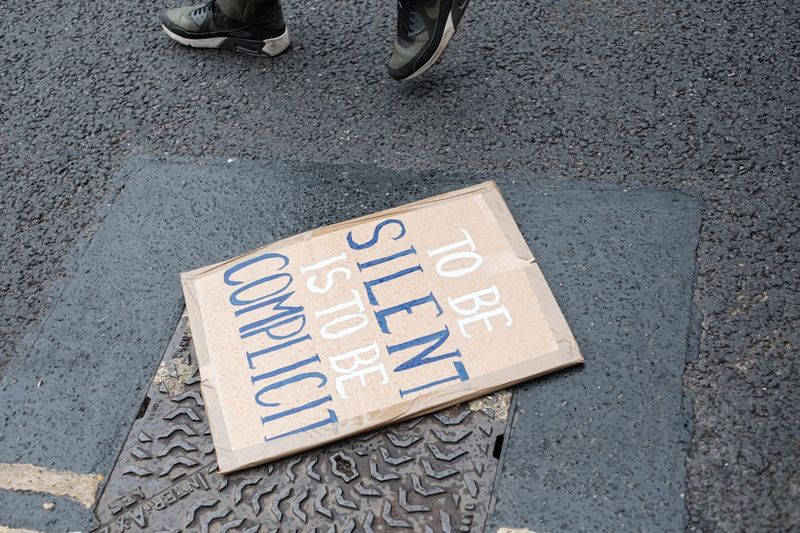Culture: Rina Sawayama Calls Out Matty Healy for Racist Remarks: “I’ve had enough.”
The Incident
Over the weekend, Rina Sawayama, the talented musician, took a strong stand against Matty Healy, the frontman of The 1975, for his past racist comments. During her performance at the Glastonbury Festival in the U.K., Rina dedicated her song “STFU” to Healy without mentioning his name directly. Instead, she brought attention to specific controversies surrounding Healy and expressed her frustration with microaggressions and racist behavior. The audience responded with loud cheers, clearly supporting Rina’s powerful message.
The Specifics
Rina referred to a few incidents involving Healy, including comments he made about rapper Ice Spice while on the podcast, The Adam Friedland Show. Healy used racially insensitive terms, such as calling Ice Spice an “Inuit Spice Girl” and a “chubby Chinese lady,” while mocking an Asian accent. Additionally, Healy mentioned watching a degrading form of pornography that featured women of color, particularly Black women, being brutalized.
A Personal Connection
Rina’s dedication of her song and her pointed remarks hold significant weight because she is signed with Dirty Hit Records, the same label as The 1975, which was headed by Healy until recently. By speaking out against Healy, she highlights the problematic actions of someone within her own professional sphere, thereby demonstrating her commitment to combating racism and supporting marginalized communities.
An Apology and Dismissive Attitude
In response to the controversies, Healy later issued an apology during a 1975 concert in New Zealand, particularly addressing his offensive remarks about Ice Spice. However, there is a sense that Healy’s apology falls short, as he seems to downplay the significance of his actions. In a recent interview, he brushed off the criticism by suggesting that those who are hurt or offended by his words are either lying or mentally unstable. This dismissive attitude can further exacerbate tensions and perpetuate a harmful culture where racism is downplayed or ignored.
Editorial: Confronting Racism in the Music Industry
A Reflection of a Wider Problem
Rina Sawayama’s powerful and public call-out of Matty Healy is a reminder that racism exists not only in society but also permeates various industries, including the music industry. Musicians hold a significant platform to influence societal norms, and their actions and words matter in shaping the cultural landscape. It is crucial for accountability to be upheld when these individuals perpetuate harmful stereotypes or engage in racist behavior.
Acknowledging Responsibility
Artists like Rina Sawayama play a vital role in holding their peers accountable and demanding change within the industry. By addressing specific incidents and refusing to let racist comments slide, they force conversations about racism and discrimination into the public eye. This helps create an environment where artists understand the consequences of their actions and strive to be more conscientious in their words and deeds.
Creating a Future of Inclusivity
The music industry must actively work towards creating an inclusive and anti-racist environment. This involves not only addressing individual instances of racism but also addressing systemic issues that perpetuate discrimination in all its forms. Labels, managers, and industry leaders have a responsibility to ensure that artists are educated about the impact of their words and that their actions align with promoting diversity, equality, and respect.
Advice: Moving Forward
Education and Awareness
To combat racism in the music industry, a collective effort is required. Artists, executives, and fans must actively educate themselves on the history and experiences of marginalized communities. The more we understand the impact of our words and actions, the better equipped we will be to challenge racism when we encounter it.
Creating Safe Spaces
Music venues and festivals should strive to be inclusive spaces where all individuals, regardless of their race or background, feel safe and welcome. This includes implementing zero-tolerance policies for racist behavior and fostering an environment where artists and audience members can report any incidents without fear of retaliation.
Amplifying Diverse Voices
Record labels and media outlets have a crucial role to play in elevating and promoting underrepresented voices. By actively seeking out and supporting artists from diverse backgrounds, the music industry can help break down barriers and challenge stereotypes. This involves giving equitable opportunities for artists to thrive and ensuring that their stories and experiences are heard.
In conclusion, Rina Sawayama’s unambiguous call-out of Matty Healy for his past racist remarks serves as a powerful statement against racism in the music industry. It highlights the need for accountability, education, and a commitment to fostering an inclusive environment. By supporting artists like Rina who use their platforms to confront racism, the music industry can work towards positive change and create a future where diversity and respect are celebrated.

<< photo by Ehimetalor Akhere Unuabona >>
The image is for illustrative purposes only and does not depict the actual situation.
You might want to read !
- Highlighting Rina Sawayama’s Bold Confrontation with Matty Healy at Glastonbury
- Exploring Taylor Swift’s Relationship History: Was Matty Healy Just a Rebound?
- Exploring the Short-Lived Romance of Taylor Swift and Matty Healy: A Month-Long Love Story Ends
- “Strictly’s Kevin Clifton Uncovers Emotional Family Connection on Live TV”
- “Unearthing Family Secrets: Kevin Clifton’s Disturbing Revelation in ‘Who Do You Think You Are’”
- Debbie Harry’s Age Remarks Spark Frenzy Among Glastonbury Fans: Exploring Society’s Obsession with Aging
- “Unearthing the Magic: Lana Del Rey’s Enchanting Headline Performance at Glastonbury 2023”
- Rock Legends Guns N’ Roses Rock Glastonbury 2023: Journey through their Unforgettable Setlist




